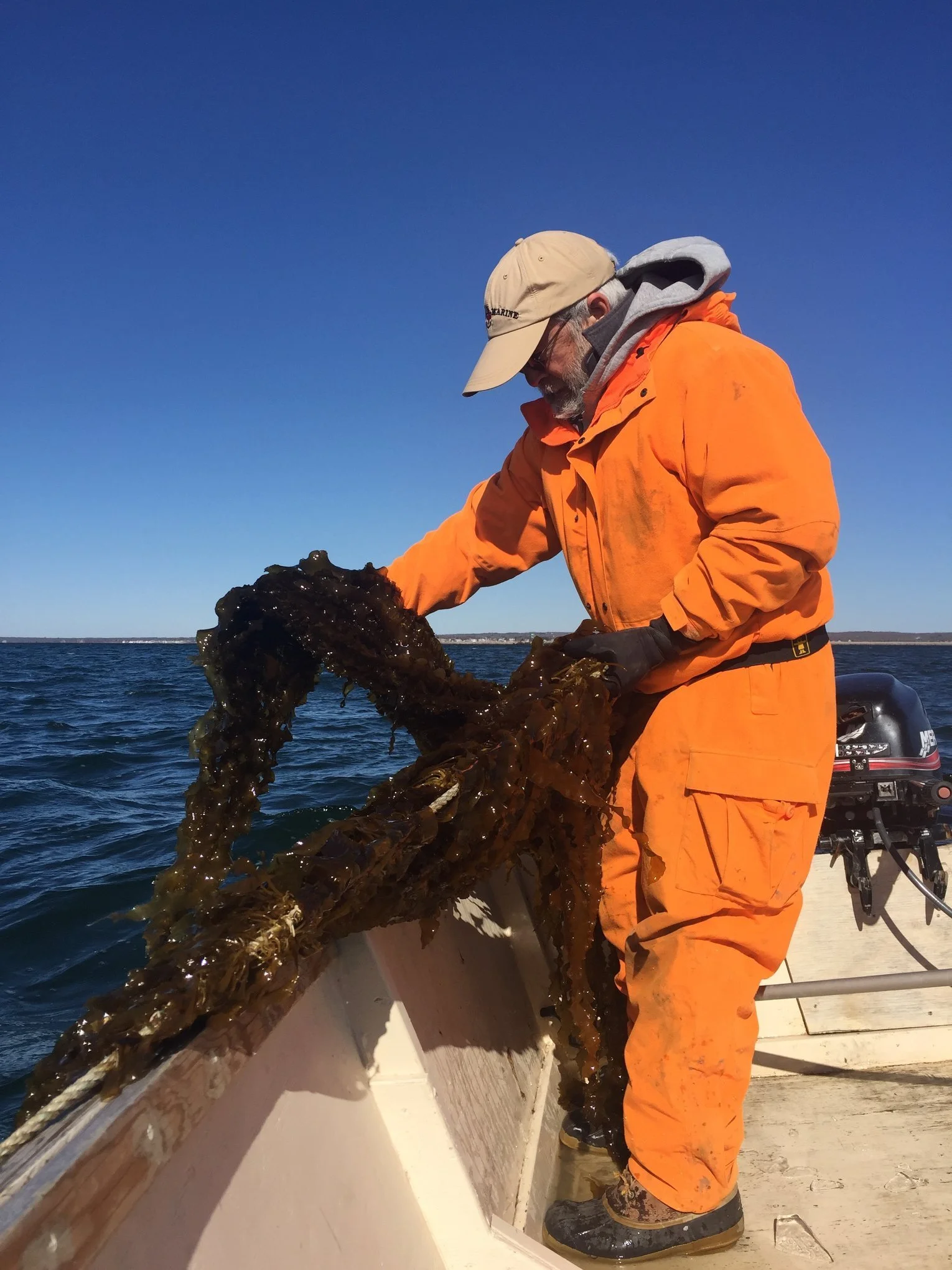Eleventh-Generation Fisherman Turns the Tide Towards Ocean Farming
Captain David Blaney, an eleventh-generation fisherman out of Point Judith, Rhode Island, spent 40 years fishing from the Georges Banks to the Bering Sea. Long-lining for tuna and trawling for cod at the height of industrial fishing, he experienced the decline of fisheries first-hand. Dave After the cod stocks crashed, he moved on to chase smaller species like butterfish, whiting, and squid—realizing there would be less and less to catch. “With the way fishing was going, I had to branch out,” he says. “Kelp is the next iteration of my family’s tradition.”
With technical assistance and hatchery support from GreenWave, Dave launched Point Judith Kelp Company in 2015. His farm harkens back to the seaweed tradition running through his hometown. When he was a child, Dave remembers, local farmers would walk down to the beach to collect seaweed to use as fertilizer on their fields. The walls of some older buildings in his town are packed with seaweed, commonly used as free insulation in the days before fiberglass and foam.
As the first permitted kelp farm in Rhode Island, Dave quickly became a leader as a trainer and spokesman educating state regulators and buyers about the regenerative ocean farming model and the benefits for the community.
Dave’s mission is to establish a thriving regenerative ocean farming industry in his home state to ensure future generations of coastal fishing communities continue to make a living working on the water. “There just aren’t enough fish to catch anymore for commercial fishermen,” he says. “We need to be thinking of other solutions now and kelp farming could give a lot of fishermen a viable career option in the off season.”
In the early stages of his business, he focused on refining his farming technique and establishing sales channels for his crop. “You’ve got to learn your site and the complexities of your system,” he says, “it took me two years to get that figured out and to learn how to work it productively.”
Now in his sixth farming season, Dave is preparing to scale his operations to triple the footprint of his farm and grow his own kelp seed. Establishing a hatchery is a critical step to support his plans to expand.
“A farmer has to have access to seed. I don’t want to see this industry evolve into a mega operation where you buy your seed from the same person you’re selling your product to,” says Dave. This ethic is at the core of the “Regenerative Reef” model GreenWave cultivates to scale in new regions. A thriving Reef is a diverse economic ecosystem, including a host of regenerative ocean farms, a land-based hatchery and processing hub, and a ring of institutional buyers and entrepreneurs developing value-added products. This distributes–rather than concentrates–profits, encourages the sharing of infrastructure, and helps keep capital and ownership local.
Dave studied everything from hatchery manuals to industry recommendations in preparation for his hatchery build. “I thought if I just break this down into smaller bits, I can do this,” says Dave.
“Dave was exceptionally proactive in his research,” says GreenWave Hatchery Manager Michelle Stephens. ”He attended our first hatchery workshop in 2019 and dove into building his hatchery prototype in fall 2020.” Dave set up his hatchery in his garage using a mix of equipment sourced off-the-shelf from a pet store and second-hand items on Craigslist. “The hatchery requires a whole different skillset than farming,” he says. “More science and attention to detail.”
Ideally, a kelp hatchery’s role in the community is to supply seed to the local area at a commercial scale and on a reasonable budget. “Dave’s garage hatchery is a good example of a minimal, lean system set up for efficiency,” says Michelle. “You don’t need anything super fancy. Basic knowledge and ability to follow hatchery procedures are the skills you need to develop a blue thumb.”
In 2021, Dave fine tuned his hatchery protocols and procedures with the support of GreenWave Science Lead Ashley Hamilton. From collecting and processing reproductive tissue to microscope work and the final stages before outplanting, Ashley visited Dave weekly and provided guidance throughout each phase of the hatchery season. “Dave is equal parts tough, salty fisherman and nurturing seed grower,” she says. “His excitement and confidence grew at each developmental milestone of the kelp seed.”
GreenWave will continue to support Dave as he improves his hatchery protocols and design. “We’ll focus on developing experiments to increase the effectiveness of his water filtration system and lighting,” says Michelle.
Next year, Dave plans to double his hatchery capacity. “I have no doubt he’ll continue to produce a steady supply of high-quality seed,” says Ashley. “It’s going to make a difference to the growing number of farmers in the area.”
GreenWave is excited to work with Dave and other fishermen to support their efforts to adapt and continue to make a living on the sea through regenerative ocean farming.



